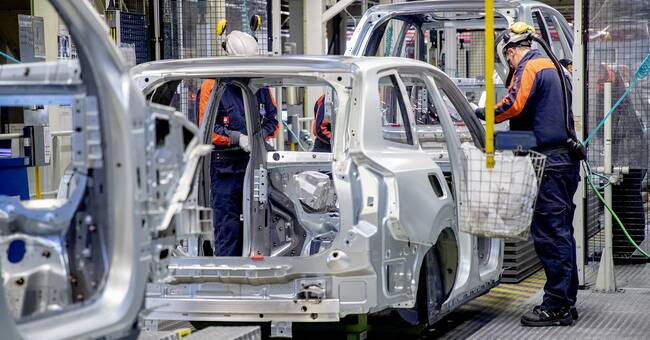The starting point in this year's wage negotiations for industry has probably been the most difficult most people involved have experienced.
The contradictions may have been harsh in other times, the strike and lockout threats serious and imminent.
But in corona times, difficulties have arisen that the negotiators probably have not tackled before.
It is, firstly, about not knowing what to talk about: When the negotiations were suspended when the corona epidemic broke out last spring, the uncertainty was total.
No one knew how deep the downturn would be, how many jobs would be lost, how many companies would be knocked out.
No one knew this even a few weeks ahead.
Everything stood still in many places
In the same vein as aircraft were grounded, factories closed, and employees laid off, there was also an imminent risk of a global financial crisis with a halt to credit, which had made the situation many times worse and more acute.
There was talk of a fall in GDP of 20 percent this year.
A terrible and dramatic figure, but some still wondered how it was possible that 80 percent of the economy would apparently remain…
Secondly, it was about not even having anything to talk about - that is, no work shifts, no deliveries, no orders.
Everything stood still in many places, even in large, important, stable workplaces.
Then came the state rescue billions.
China opened.
Most things that stood still in the industry got started.
The viral pressure on healthcare eased, Swedish tourists were released into the country and could spend, the stock market continued to recover, and economic forecasts became increasingly gloomy.
The latest from the government predicts a GDP fall of 4.6 percent this year.
"Seeking security in small corners of reality"
But still the situation in the economy was more uncertain than anyone could have imagined it could ever be a year ago.
And the Confederation of Swedish Enterprise spoke when the contract negotiations were to resume about zero bids - as well as about the anti-tax increase guarantee from the government.
It may of course have been pure and simple negotiation tactics, but psychologically it is close at hand to also imagine that employers seek security and the status quo in the small corners of reality they can actually influence.
For the large, important and crucial parts of reality, they can hardly judge or influence.
Of course - many employers, especially smaller ones, are probably turning and twisting the crowns right now, when demand is slim, and they still hope for a turnaround soon.
But many, especially in industries that are linked to travel and tourism, have, as in the spring, a completely unsustainable situation, where no missed wage increases in the world help.
Others, such as many large listed export companies, have a much better situation and higher profits than anyone could have imagined, not only this spring but also a few weeks ago.
Some who received redundancy support from the state to avoid notice, even had plans to distribute money to shareholders anyway, and can in all probability afford higher wage increases than the agreement.
The crucial issues for both jobs and profits in the future are instead exactly how society and the economy change during the contract period - as a result of not only the corona crisis, but also digitalisation in general, and, last but not least, climate change.

